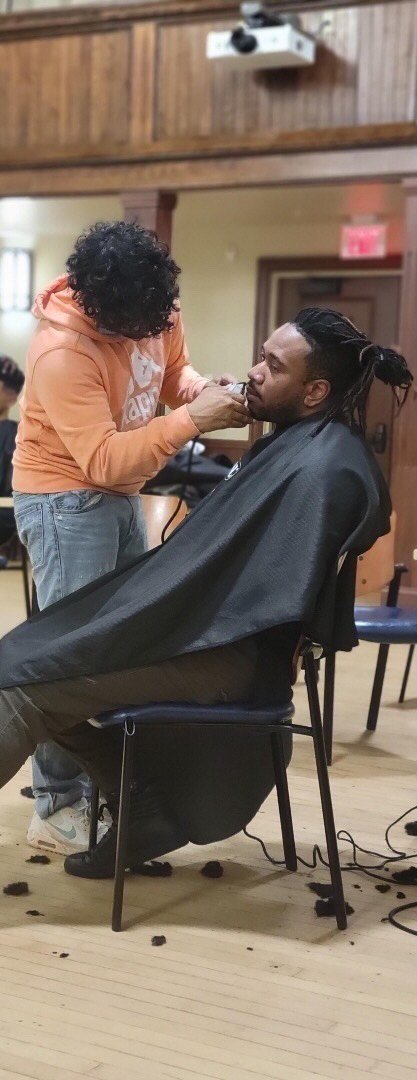NS Men’s Health Barber Shop Talks
/The Barber Shop Talks was an event hosted at Dennis Hall, Coady West, for two hours at the end of last November. Its goal was to provide a Safe Space for Black men to talk about Race, and mental health, all while receiving a free professional cut, fade, or shave. Hosted by Black student advisor, Tara Reddick, in collaboration with the NS Men’s Health League (NSMHL), the event was well received, and a total of eleven Black men attended it. The NSMHL has hosted similar initiatives, mainly across the greater Halifax region. But, for Antigonish, it was definitely the first time that a mental health talk has ever been incorporated into a pop-up barbershop.
Mental health and hair care, it may go without saying, are among the many services that have been tested and exasperated by this pandemic. But, for members of Antigonish’s Black community, these specific two are hardly more scarce now than they were prior to Covid.
Antigonish has plenty of places to get a haircut, but it is not easy to find ones which cater to the unique needs of Black students. In previous years, the host of the Barber Shop Talks invited Black barbers from Halifax to improve the situation. And, providing services at the Talks this November successfully included one professional from Halifax, as well as two StFX students: Armando Pascual de la Cruz, and Wankunda Bwalya. Since there remain no professional Black barber shops in Antigonish, often times, students capable of providing amateur cuts are relied upon, as Reddick states “We have some very talented Black students who fill the gap in essential hair services for our Black student population”. Some, she comments, “end up perfecting their skills over their academic career here at StFX”.
Black health care professional Dr. Ron Milne was also present at the event, offering discussions on various issues pertinent to mental health in The Black community. Among the notable topics covered was how the lack of medical data on African Canadians, relative to white or Caucasians, affects Black Men’s health. From this, discussions were raised on issues which included misdiagnosis, deficits in cultural understanding, and, the fact that Black people are generally unable to see African Canadian therapists.
The sharing circle made for a steady vibe wherein everyone was on the same level. Questions discussed here by Dr. Milne included: What happens when you start to feel down? What is a stress response? And, who would talk to if you had mental health issues? Two quotes from the responses that day are: “It can be tough for Black males to admit they need help or have a mental health problem”, and “There needs to be more people to talk to on campus and in the community”.
Regarding these sentiments, Reddick comments: “StFX is trying to make mental health a priority and has partnered with the people’s counselling clinic to provide Black staff, students, and faculty with culturally relevant counselling services”. The NS Men’s Brotherhood has also recently hosted a similar event for females which included related discussions along with free mini manicures. Evidently, the format works. It is a creative asset in breaking the stigma of talking about mental health in the Black community; particularly during this pandemic. Due to the latter, however, it is not clear when the next Barber Shop Talks will be. Reddick informs that the NSMHL plans to do more of them on other campuses as well as X in the future. Reddick, herself, hopes that our campus will feature another Talks before the pandemic’s end, noting that this first one was certainly well received.



